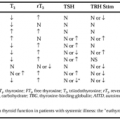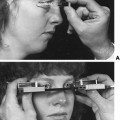CONGENITAL ADRENAL HYPERPLASIA
Phyllis W. Speiser
Congenital adrenal hyperplasia (CAH) is a group of inherited diseases caused by defective activity in one of five enzymes that contribute to the synthesis of cortisol from cholesterol in the adrenal cortex (Fig. 77-1). Details of normal adrenal steroidogenesis are discussed in detail in Chapter 72. The term adrenal hyperplasia derives from the tendency to glandular enlargement under the influence of adrenocorticotropic hormone (ACTH) in an effort to compensate for inadequate cortisol synthesis. The alternate term adrenogenital syndrome refers to the common associated finding of ambiguous external genitalia due to incidental deficiency or excess production of adrenal androgens. Each particular enzyme deficiency produces characteristic alterations in the ratio of precursor hormone to product hormones. These hormonal imbalances are accompanied by clinically evident abnormalities, including abnormal development of the genitalia and pseudohermaphroditism, disturbances in sodium and potassium homeostasis, blood pressure dysregulation, and abnormal somatic growth1,2,2a (Table 77-1). The molecular genetic basis for all but one of the enzymatic deficiencies is known; disease-causing mutations have been identified for the genes encoding the respective steroidogenic enzymes.
Stay updated, free articles. Join our Telegram channel

Full access? Get Clinical Tree





